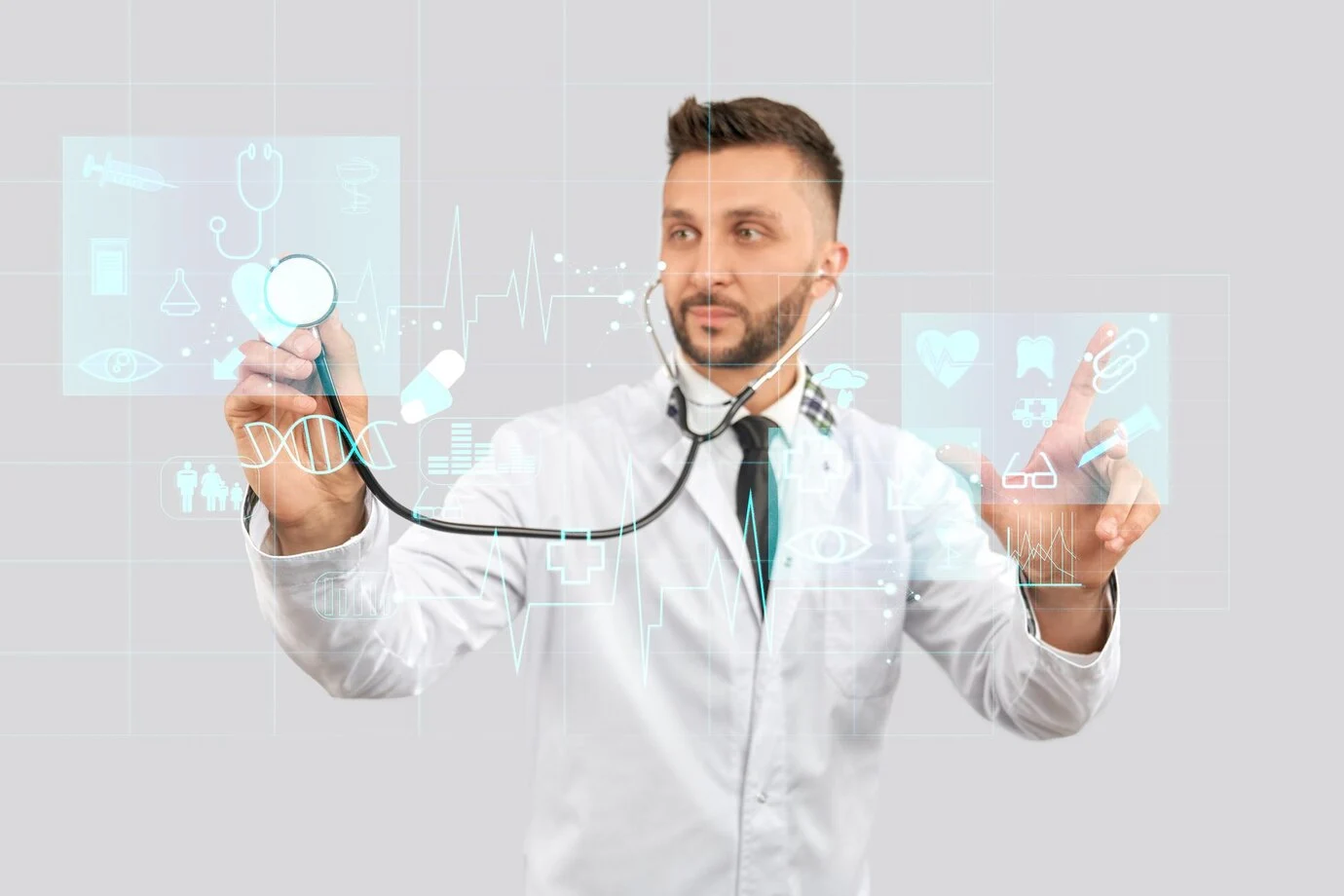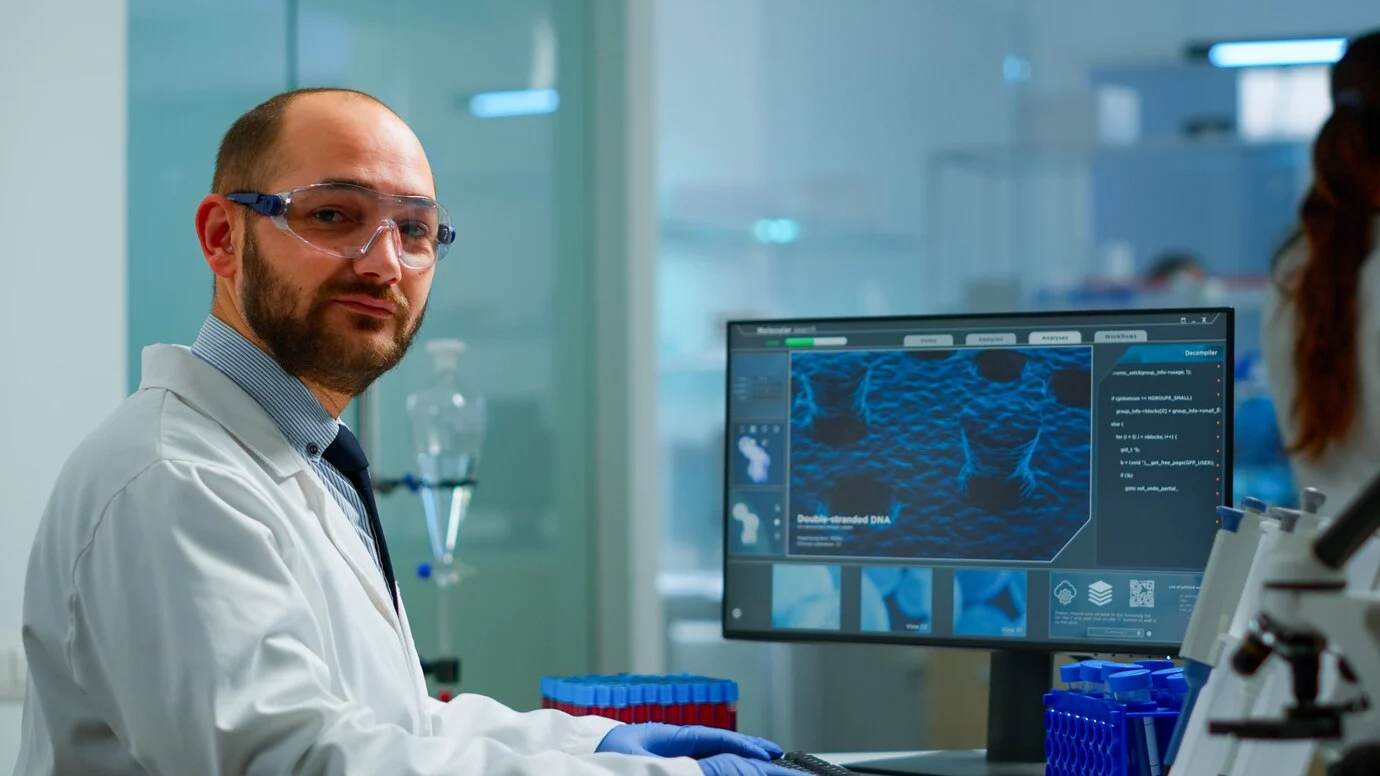
In an era where data drives decision-making, healthcare analytics has emerged as a pivotal field transforming the way medical institutions operate and deliver care. The healthcare industry is increasingly relying on analytics to enhance patient outcomes, streamline operations, and reduce costs.
With the demand for skilled professionals in this domain skyrocketing, a Healthcare Analytics Master’s Degree can be your gateway to a rewarding and impactful career.
What is Healthcare Data Analytics?
Healthcare Data Analytics refers to the process of analyzing and interpreting various types of health data, such as patient records, clinical trials, and hospital management information, to improve patient outcomes, enhance operational efficiency, and support clinical decision-making. It involves the use of statistical, predictive, and prescriptive analytics to transform raw data into actionable insights.
Data Analytics vs. Healthcare Data Analytics
- Data Analytics: A broad field that involves the examination of data sets to draw conclusions about the information they contain. It can be applied to any industry, including finance, marketing, and retail.
- Healthcare Data Analytics: A specialized subset of data analytics that focuses specifically on health data. This specialization requires knowledge of healthcare systems, medical terminologies, regulatory requirements, and specific analytical techniques tailored for healthcare applications.
Is Data Science Related to Healthcare Data Analytics?
Yes, data science is closely related to healthcare data analytics. Data science provides the foundation for healthcare data analytics through its tools, techniques, and methodologies, such as machine learning, predictive modeling, and data visualization. Professionals in healthcare data analytics often utilize data science principles to derive insights from complex healthcare data sets.
Healthcare Data Analytics Programs

Many universities and institutions offer specialized master’s programs in Healthcare Data Analytics. These programs typically cover topics such as biostatistics, health informatics, machine learning, and healthcare management. Notable programs include:
- Master of Science in Healthcare Data Analytics
- Master of Health Informatics
- Master of Public Health with a concentration in Data Analytics
Certifications
Several certifications can enhance a professional’s credentials in healthcare data analytics:
- Certified Health Data Analyst (CHDA): Recognizes expertise in health data analysis and management.
- Certified Analytics Professional (CAP): General analytics certification that covers a broad range of industries, including healthcare.
- Certified Professional in Healthcare Information & Management Systems (CPHIMS): Focuses on healthcare information and management systems.
- Certified Professional in Healthcare Quality (CPHQ): Covers essential knowledge for managing and improving healthcare quality.
- Registered Health Information Administrator (RHIA): Credential for managing patient health information and medical records.
- Certified Business Intelligence Professional (CBIP): Advanced certification for business intelligence and analytics professionals.
Careers in Health Analytics

Career opportunities in health analytics are diverse and can include roles such as:
- Health Data Analyst
- Clinical Data Analyst
- Healthcare Business Analyst
- Biostatistician
- Health Informatics Specialist
- Data Scientist in Healthcare
Health Analytics Faculty
Faculty members in healthcare analytics programs are typically experts in fields such as biostatistics, informatics, data science, and healthcare management. They often have a combination of academic and industry experience, contributing to both theoretical knowledge and practical applications.
Top Universities Offering Healthcare Analytics Master’s Programs
United States
Europe
- University College London
- Karolinska Institutet
- University of Amsterdam
Asia
- National University of Singapore
- The University of Tokyo
- Chinese University of Hong Kong
Why Pursue a Master’s Degree in Healthcare Analytics?
Career Opportunities
A Master’s degree in healthcare analytics opens doors to numerous career opportunities. Graduates can work in hospitals, pharmaceutical companies, insurance firms, and government agencies. The roles include healthcare analyst, data scientist, health informatics specialist, and more.
Potential Salaries
Healthcare analytics professionals are well-compensated for their expertise. According to industry reports, the average salary for a healthcare analyst ranges from $70,000 to $120,000 annually, with data scientists earning even higher.
Industry Demand
The healthcare industry is in dire need of analytics professionals who can make sense of vast amounts of data. With the ongoing emphasis on evidence-based practice and value-based care, the demand for skilled analytics professionals is only expected to grow.
Skills Acquired Through the Program
Technical Skills
Students gain proficiency in various technical skills such as programming (Python, R), database management (SQL), and the use of analytical tools like SAS and Tableau.
Analytical Skills
The ability to analyze and interpret data is at the core of healthcare analytics. Students learn how to apply statistical methods and machine learning algorithms to solve healthcare problems.
Communication and Presentation Skills
Apart from technical and analytical skills, students also learn how to effectively communicate their findings. This involves data visualization techniques and the ability to present complex data in a comprehensible manner to non-technical stakeholders.
The Future of Healthcare Analytics
Emerging Trends
Healthcare analytics is evolving rapidly with the integration of artificial intelligence and machine learning. These technologies are enabling more accurate predictions and personalized patient care.
Technological Advancements
Advancements in big data, cloud computing, and blockchain are transforming healthcare analytics. These technologies offer new ways to manage and analyze vast amounts of health data securely and efficiently.
Core Components of a Healthcare Analytics Master’s Program
Curriculum Overview
A typical healthcare analytics master’s program is a blend of healthcare knowledge and advanced analytics skills. The curriculum is designed to equip students with the ability to handle complex data and derive actionable insights.
Key Courses and Subjects
Key courses often include biostatistics, epidemiology, data mining, machine learning, health informatics, and database management. These subjects ensure that students are well-versed in both the theoretical and practical aspects of healthcare analytics.
People Also Ask
What is the best master’s in healthcare analytics?
The best master’s programs in healthcare analytics are often ranked based on faculty expertise, curriculum, industry connections, and research opportunities. Top programs include those offered by universities like Johns Hopkins, University of North Carolina, and Northwestern University.
Which master’s degree is best for data analytics?
For a general focus on data analytics, degrees such as a Master of Science in Data Science, Master of Science in Business Analytics, or a Master of Science in Statistics are highly regarded.
Is a master’s in data analytics useful?
Yes, a master’s in data analytics is useful as it provides advanced skills in data manipulation, statistical analysis, and machine learning, which are highly sought after in various industries, including healthcare.
What is the difference between health analytics and health informatics?
- Health Analytics: Focuses on the analysis of health data to gain insights and support decision-making.
- Health Informatics: Involves the use of information technology to organize and analyze health records to improve healthcare outcomes. It is broader and includes aspects of data management, information systems, and technology use in healthcare.